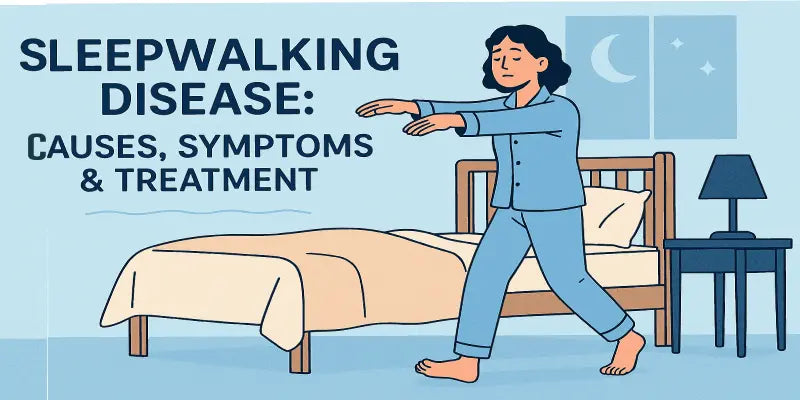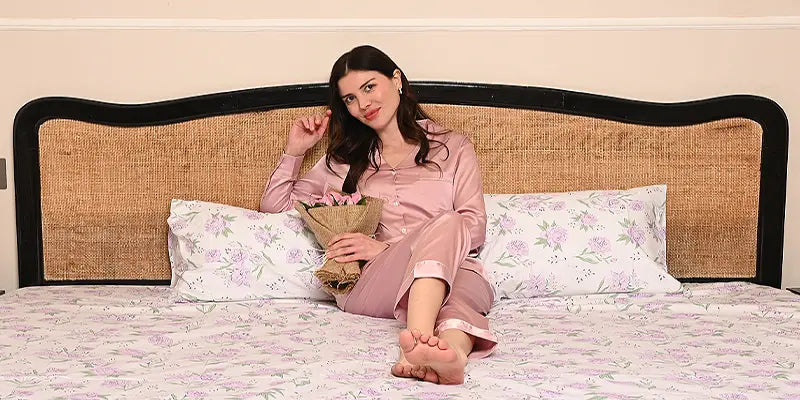
Tips for Managing Sleep Disturbances in Chronic Pain Conditions
When you have ongoing pain, getting good sleep can feel like a tough challenge. But there are ways to make it easier. Sleeplessness and chronic pain discomforts are often linked with each other.
People who have chronic pain frequently have trouble falling asleep or wake up multiple times at night. Because sleep is frequently of poor quality, you wake up feeling exhausted even if you don’t get enough sleep. People frequently wish to address sleep as part of pain management as a result. In this blog, we'll talk about seven easy tips to help you sleep better, even when dealing with chronic pain.
What Causes Chronic Pain?
Since everyone has felt pain, what sets apart acute pain from chronic pain? Normal, acute pain is different from chronic pain in that it eventually goes away. Years can pass when dealing with chronic pain, which is even more persistent.
Most chronic pain results from an ongoing medical condition or is caused by an underlying illness, such as an injury or infection. Nonetheless, some people have chronic pain even when they have never had a sickness or injury.
Among the common, non-disease-related causes of persistent discomfort are:
- Being too heavy or fat
- Aging normally in humans
- Bad alignment
- Lifting, hauling, or transferring big goods improperly
- Having a poor-quality mattress
The following illnesses and ailments can result in persistent pain:
- The fibromyalgia
- Shingles for Arthritis
- Injury to the nerves
- Cancer
- Multiple sclerosis
How Does Pain Affect Sleep?
Researchers have discovered that in chronic illnesses such as rheumatoid arthritis, short sleep durations, fragmented sleep patterns, and poor quality sleep often contribute to increased sensitivity to pain the next day.
Additionally, it seems that those who struggle with sleep are more likely to later acquire migraines and fibromyalgia. Positively, a number of studies have also discovered that getting enough sleep over time may lessen chronic pain.
Sleep is influenced by pain, but pain is also influenced by sleep. Pain and sensitivity to pain may both rise when sleep deprivation occurs. Pain relief will be aided by better sleep, and vice versa. This idea is similar to a vicious loop where pain influences sleep, and sleep influences pain.
Tips to Sleep Better While Dealing With Pain
1. Eat things that might aid in promoting sleep
Tryptophan levels in your body can increase if you eat particular foods in your evening meal. One form of protein called tryptophan is necessary for the synthesis of serotonin, the hormone that controls sleep. Increased tryptophan levels facilitate faster sleep onset, more restful sleep, and improved morning alertness. These three foods are examples of foods that promote sleep:
- Glycemic index-high carbohydrates, as those found in rice.
- Fruits, including kiwis and cherries.
- Whole foods include shellfish, fatty fish, milk, and pulses.
2. Do yoga every day
Yoga is a mind-body therapy that can help with chronic back pain and enhance sleep through its physical positions, rhythmic breathing, and meditation techniques. You can get help from a yoga instructor who can help you modify the poses based on your tolerance level and the underlying reason for your back pain.
Once you understand the particular yogic positions, you can practice them whenever it's most convenient for you, even at home. Make sure to let your yoga instructor know if you feel any pain or discomfort during a position.
3. Go for a little stroll in the evening
An evening stroll may help ease your discomfort and promote better sleep if you have persistent lower back pain, work in an office, receive little exercise, and have trouble falling asleep at night.
Your body's core temperature rises while you move. The body's heat-dissipating processes then start to cause this temperature to decrease (such as increased blood flow to the skin). Your body's subsequent drop in temperature aids in starting your sleep cycle. Additionally, walking can reduce anxiety and improve sleep.
4. Create a good sleep environment
Maintain a quiet, dark, and cold room. It could be harder to fall asleep in the evenings if you are exposed to light. Avoid using light-emitting screens for extended periods of time right before bed. To make your environment comfortable, try utilizing a fan, earplugs, room-darkening curtains, or other gadgets.
Better sleep can be helped by engaging in relaxing activities before bed, such as taking a bath or practicing relaxation techniques.
Conclusion
Dealing with chronic pain and sleep problems isn't easy, but there are simple steps you can take to improve your sleep quality. By sticking to a routine, making your bedroom cozy, relaxing before bed, avoiding stimulants and screens, managing your pain, staying active, and asking for help when you need it, you can make sleepless nights a thing of the past.
Along with other things, you can also consider replacing your traditional pillow with a better one. Pillows also impact the quality of sleep and can help you sleep better at night.
Bamboo pillows are the talk of the town these days. Bamboo pillows are made to be wonderfully soft and to maintain your neck and spine in alignment, which helps to encourage a refreshing and pleasant sleep experience. The fact that bamboo pillows hold their firmness and form over time adds to their durability, which is another advantage.








